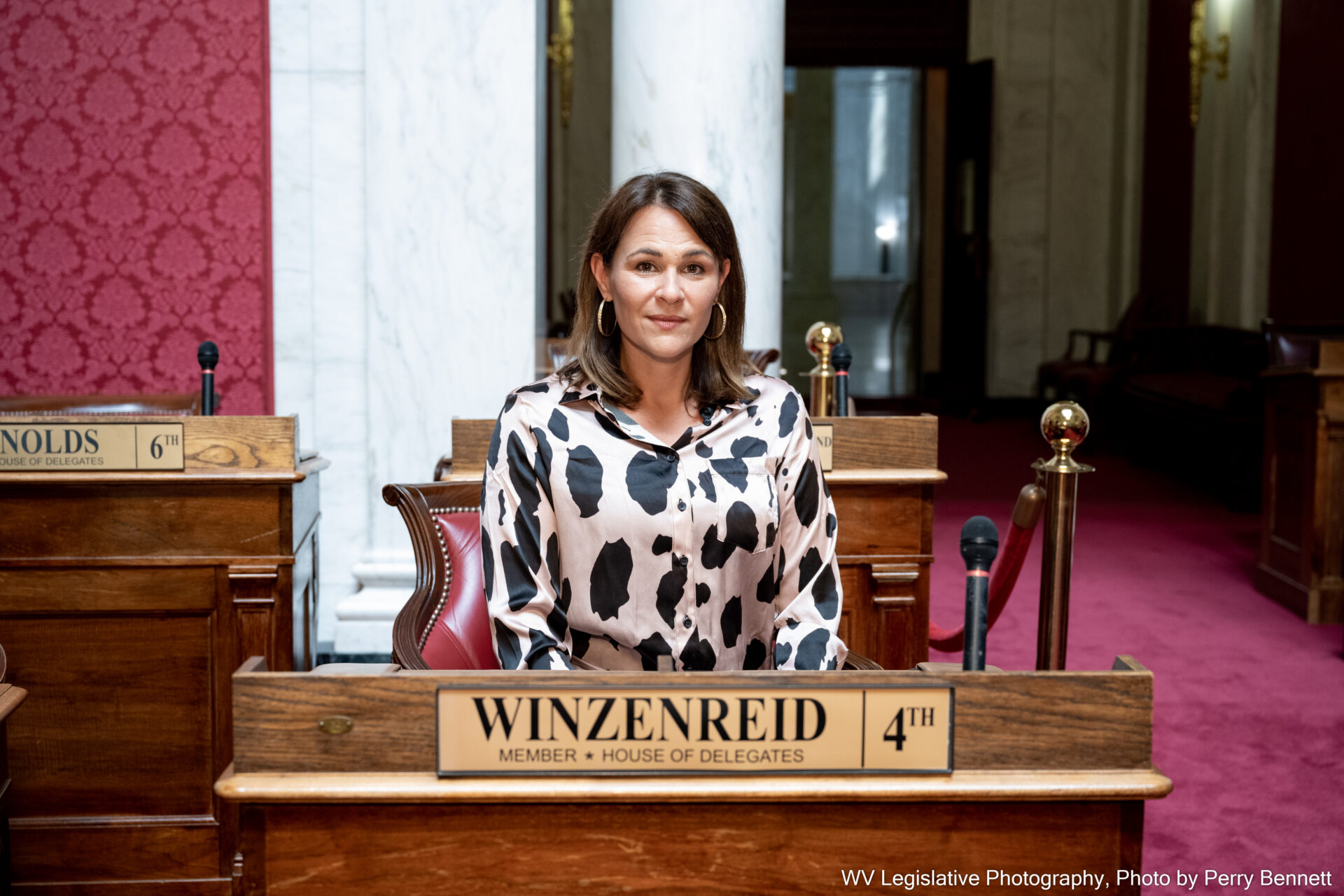Last month, Del. Erikka Storch stepped down as representative for the 4th House District to become external affairs manager at Appalachian Electric Power.
Diana Winzenreid was selected to serve out the remainder of Storch’s term, and reporter Chris Schulz sat down with the state’s newest delegate to discuss her new position and plans.
This interview has been lightly edited for clarity.
Schulz: How are you feeling about your appointment?
Winzenreid: I am very excited about the appointment and incredibly honored to have been chosen and very appreciative of all the people who helped to put me in this position.
Schulz: I know that the process is more or less the same for most appointed candidates. But could you briefly walk me through what that process was like for you?
Winzenreid: There was a public posting for anybody that was interested in applying. And we were asked to submit our letters of interest and a bio, which I did. The committee invited us all in for a meet and greet kind of question and answer session. We were all asked the same questions. And the committee then voted and sent three names down to the governor’s office. And then he selected from the three. From there, I was notified and went down and met with the Speaker of the House and was sworn in.
Schulz: Is this your first foray into public office, or is this something that you’ve pursued before?
Winzenreid: This is my first foray, I have never pursued public office before.
Schulz: So what made the difference this time around and made you say, “You know what, I’m gonna go for it.”
Winzenreid: I moved back to Wheeling, I’ve lived out of the area for a lot of my adult life. I was born in Wheeling, and it’s always been home base for me, and I moved back in 2016. And I became more and more active in the local community and wanted to find a way that I could be of service and be as actively involved as possible and provide a positive impact. And I thought I had a unique perspective, after having lived in so many different areas, and really having sort of a different take on the significance of states rights and state law.
Schulz: What are some of the objectives that you have for the remainder of the term that you’ve been appointed to serve?
Winzenreid: So to me, it’s really important to meet with the local employers, nonprofits, and get a feel for what they want to see, to make sure that I’m actively representing the constituents. I was appointed, not elected, so that I feel like there’s an additional responsibility. Most of my experience, my passion, lies in economic development, as well as family services.
Schulz: Do you have your committee appointments already?
Winzenreid: I don’t have my committee assignments yet. I expect to in the next two weeks, but both the speaker and the deputy speaker have been very kind with their time, everybody has been very kind to me during this transition, and definitely asked for my input where I thought I would be well suited. I am in a unique position because Del. Storch was such a tenured delegate, that coming in as a freshman would not necessarily fill her roles based on her years of experience. So there is a little bit of movement that needs to happen.
Schulz: Could you tell me a little bit more about the reception that you’ve received?
Winzenreid: Everybody has been absolutely wonderful. I have heard from delegates all across the state. They’ve all been very kind offering their help, offering some words of wisdom through the transition. They all told me that I could reach out at any time. I’ve received a similar reception from the local business community. And Del. Storch has been very, very kind with her time. She clearly leaves some big shoes to fill. She is amazing and has done a great service to District 4. She’s been very, very helpful.
Schulz: To that point, is there anything about Del. Storch’s position, her platform, the legacy that she leaves behind, that you’re hoping to continue, or are you focused on forging your own path?
Winzenreid: In the West Virginia Legislature, Del. Storch and I both have unique takes and are different people with different experiences. So, I definitely hope to represent our area well and make her feel comfortable with my appointment so that she feels that we’re being represented correctly. I think that anything I can do to live up to Erikka’s standards would make me pleased.
Schulz: Yeah, that makes perfect sense. I know that we’ve jumped through quite a few different subjects in the short amount of time that we’ve been speaking. So I have no doubt that I’ve missed out on something. But if there’s anything that you’d like to tell me or you’d like to speak on, that I haven’t given you an opportunity to discuss just yet, please do so now.
Winzenreid: I think the biggest priority is meeting with the employers and the nonprofits locally in advance of interims. I think for me, the biggest thing is my goal to be as visible and available as possible to make sure that I’m hearing everybody’s voices. I am open to communication and really want to be as involved a representative as theoretically possible. And I look forward to having a positive impact and working with the community.
